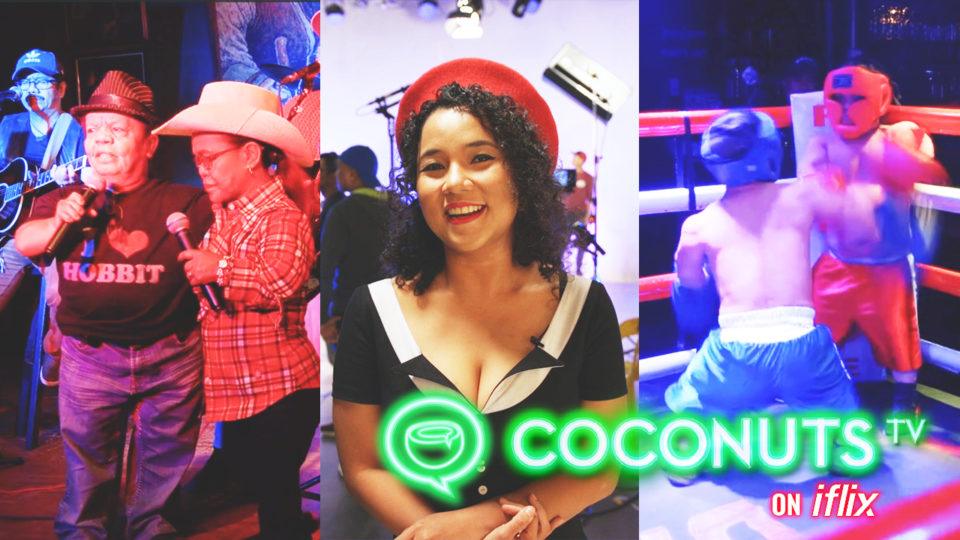PRESENTED BY
Our brand-new documentary series, COCONUTS TV ON IFLIX, the first original docu-series to drop on the streaming service, is out right now! While the six-episode series is available exclusively on iflix, you can get a taste of the series by watching a special segment from the second episode, “The Short Circuit” right here. Read on to learn more about the voice of the little people in the Philipines.
Glorian Tomen is a government employee and activist. She also happens to be a little person, or someone who is of short stature because of a medical condition.
Her main advocacy work involves standing up for the rights of other little people (LP) in the Philippines, and she says the country still has a long way to go when it comes to awareness on the topic.
She pointed to a February episode of the TV show Rated K as an example.
“There’s really a lack of awareness, like the use of the “M Word,” by some people/TV networks when referring to people with dwarfism. They are still not aware that it is not acceptable,” she told Coconuts Manila in Filipino on Wednesday.
The “M Word” she was referring to was of course “midget,” long-considered a pejorative term.
While the story was about how a group of little people were able to overcome their struggles by working as bodyguards, Tomen still took offense with the word choice.
“I wrote a letter to the staff of the show and to Ms. Korina [Sanchez, the host] about that episode, but got no response at all,” she said.
But the struggles of Filipino little people go beyond inappropriate name-calling.
Little people encounter hardships wherever they are in the world — from not having access to proper facilities, to a lack of representation in the media — but according to Tomen, it’s even worse in the Philippines.
“As of now, for me, the situation here is worse than in other countries,” she said. “Because when I attended the International Dwarfism Leadership Summit in Berlin, Germany, last October 2016, I realized that the Philippines is one of the few countries that has no concrete programs for people of short stature.”
According to Tomen, there is still no law that directly protects little people and that they are simply considered as “people with disabilities (PWD).”
“[S]ince we are also considered PWDs, a PWD ID is being accorded, which entitles one to 20% discount on meals, medicines and transportation,” she said.
While this is helpful, it doesn’t exactly address the major problems Filipino little people have had to deal with for years — most critically, unemployment.
“Most of [the] LPs, I’ve met are marginalized. Not all are professionals and educated, so they are forced to take on menial and low-paying jobs,” Tomen said.
Because of the lack of employment options, Tomen said some resort to jobs where they are objectified. “[S]ome (of my fellow LPs) even allow themselves to be used as objects of amusement,” she said.
Cut to Ringside, a bar in Makati City’s red light district where “midget boxing” is the main attraction. There, little people are paid to box each other inside a ring at the center of the bar, a spectacle clearly played for laughs with the customers.
Little people have long been used as attractions, be it in places like Ringside or carnivals. Some, though, end up working in the entertainment industry, often times as comedians.
Take the actor Ernesto dela Cruz (aka Weng Weng), the subject of the 2013 documentary The Search for Weng Weng. He appeared in various comedic films in the 1980s, first in cameo roles, but also as the lead of action-comedies For Y’ur Height Only and The Impossible Kid.
A more recent example is Dagul, or Romy Pastrana, an actor who appears in the comedy sketch show Goin’ Bulilit.
When Coconuts spoke with Dagul, he acknowledged how difficult it is to find a job, which is why he does not see anything wrong with working at places like Ringside.
“It’s really difficult to get a job for people like me. It’s really difficult. Any job is alright to venture into,” he said.
Even though progress is slow, Tomen said that she remains hopeful about the future.
“Yes, of course, I’m still hopeful. If it doesn’t happen now, hopefully in the coming years. Step by step. For now, awareness first.”






